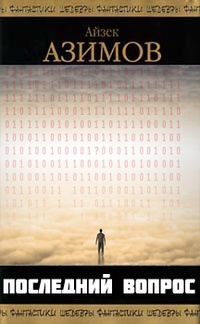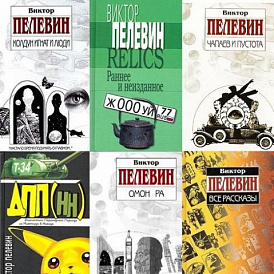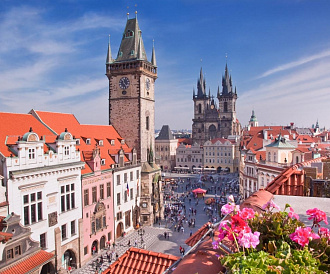10 best books by Isaac Asimov
Isaac Asimov is recognized as a classic science fiction of the XX century. Jew by nationality, Russian by birth, American by citizenship, the writer has been awarded 20 international awards for the best works in various nominations. Azimov wrote about robots, flights in time and between planets, talked about the boundaries of Being and mind. Almost all the novels of the author are filmed by modern directors, which indicates the relevance of his stories in the 21st century.
Top books by Isaac Asimov
| Nomination | a place | title of the work | rating |
| Top books by Isaac Asimov | 1 | I, the robot (1950) | 4.9 |
| 2 | End of Eternity (1955) | 4.8 | |
| 3 | Founding (1951) | 4.8 | |
| 4 | The gods themselves (1972) | 4.7 | |
| 5 | Profession (1957) | 4.6 | |
| 6 | Naked Sun (1956) | 4.5 | |
| 7 | Second Academy (1953) | 4.5 | |
| 8 | Robots and Empire (1985) | 4.5 | |
| 9 | Bicentennial Man (1976) | 4.5 | |
| 10 | Last question (1956) | 4.4 |
I, the robot (1950)
Book author: Isaac Asimov
Rating: 4.9
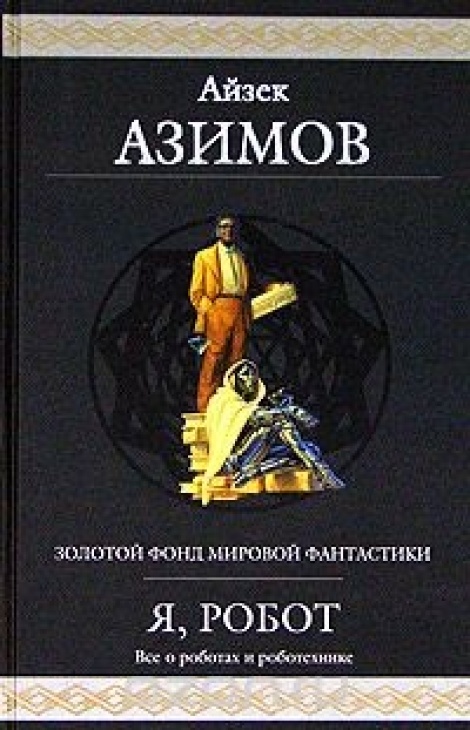
The first in the rating book "I, Robot" is a collection of 9 fantastic stories, written from 1940 to 1950. Interestingly, the title was borrowed from another author, Endo Binder, and the idea of such “plagiarism” belonged not to Azimov, but to the publisher of the book.
The stories are represented by separate stories related by the memories of one person, Dr. Susan Kelvin, who was interviewed in 2057. He is a full-time robot psychologist at the worldwide positron robots corporation. In the stories, one idea runs like a thread, and to date it is a search for a resonance between the laws of software, computer algorithms and human factors, attitudes and ways of thinking. Scientists, engineers, politicians and possible robots in human form, hiding from exposure, take part in the stories, and the action takes place at the beginning of the XXI century on all planets of the Solar system.
When the world war ended in the universe of robots in 1982, people invented the positron brain and hyperdrive, which marked the beginning of the colonization of the solar system. The law did not allow the use of robots on Earth, but on satellites, asteroids and stars, they fully justified themselves.
In the work for the first time in the world 3 rules of robotics are formed.
End of Eternity (1955)
Book author: Isaac Asimov
Rating: 4.8
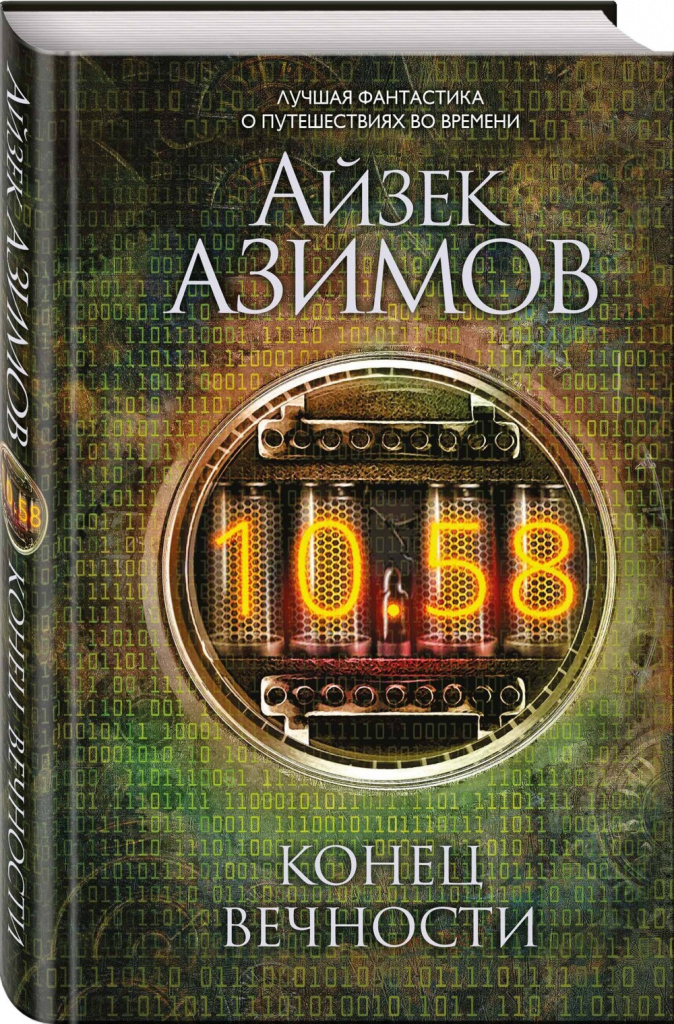
The second in the rating of the novel "The End of Eternity", in which we are talking about Eternity and travel in it. This is the first work of its kind in science to become a classic of the genre.
The action takes place in the structure of "Eternity", which controls reality and time. It includes people, the so-called "eternal", capable of traveling between centuries. Their task is to control and correct the history of mankind. The focus is on the Nemesis star, whose Eritro satellite is the only way out for humanity on the threshold of a threatening demise. However, during the development of the star there was a problem - people are affected by the "erythronic plague".
In the novel, the time and position of everyday life, and even academic life, are lost, Isaac Akimov uses many professional terms, some have not been translated into Russian and have been lost to date. It is preceded by the story "The End of Eternity" later written novel "The Gods themselves", which we consider next.
Founding (1951)
Book author: Isaac Asimov
Rating: 4.8
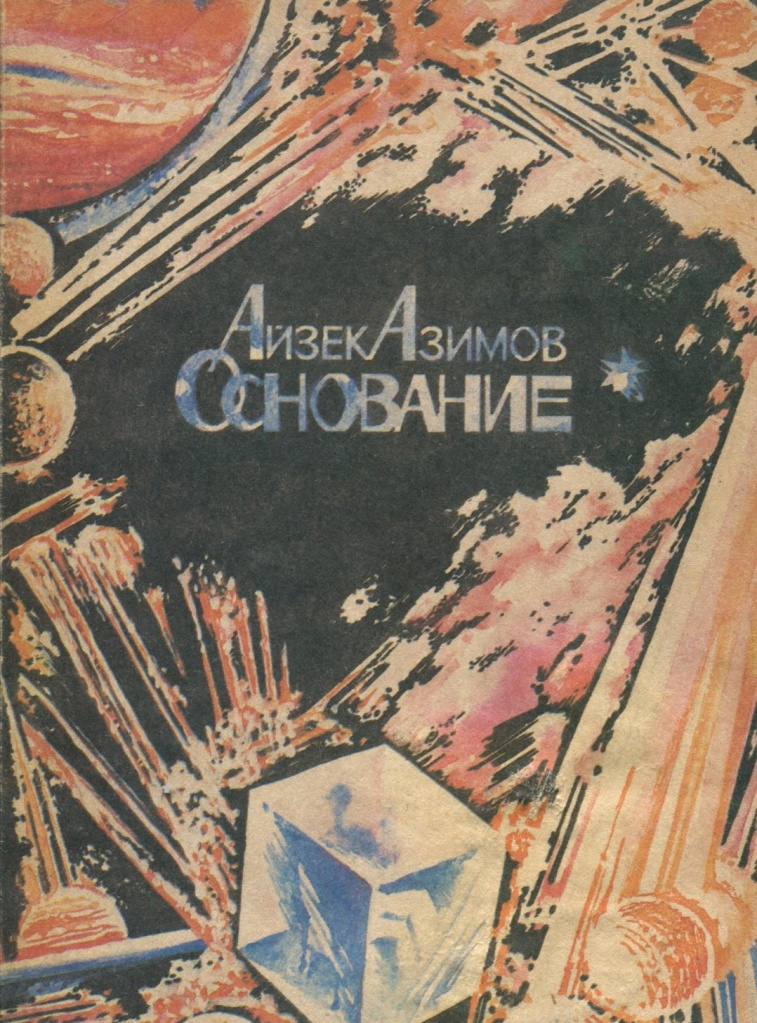
Bronze goes to the novel "Foundation", which became the first in the eponymous trilogy. The action takes place in the Trantorian Empire, the largest in the galaxy.Scientist Gary Seldon, using mathematical and psycho-historical methods, predicts the fall of the Empire for several centuries with a probability of 92.5%, but the Public Security Commission prohibits such information from publicizing for fear of unrest and riots that have already begun to manifest. The capital Trantor is mired in bureaucracy and corruption, being in a difficult situation to maneuver. The impending collapse lies in the collapse of the Empire and the return of humanity to barbaric times, when all achievements will be plundered and lost, in particular, innovative technologies and nuclear energy. The task of the people is to collect all the values in the Academy until the fall of the Trantora.
Gary Saldon sets himself the task of minimizing the effect of a catastrophe, reducing the time of predictable barbaric unrest from 30,000 years to 1,000 years and preserving all the great knowledge in the Encyclopedia. Found a new planet for life - Terminus, this is where the scientist is trying to save all the achievements of mankind.
The gods themselves (1972)
Book author: Isaac Asimov
Rating: 4.7
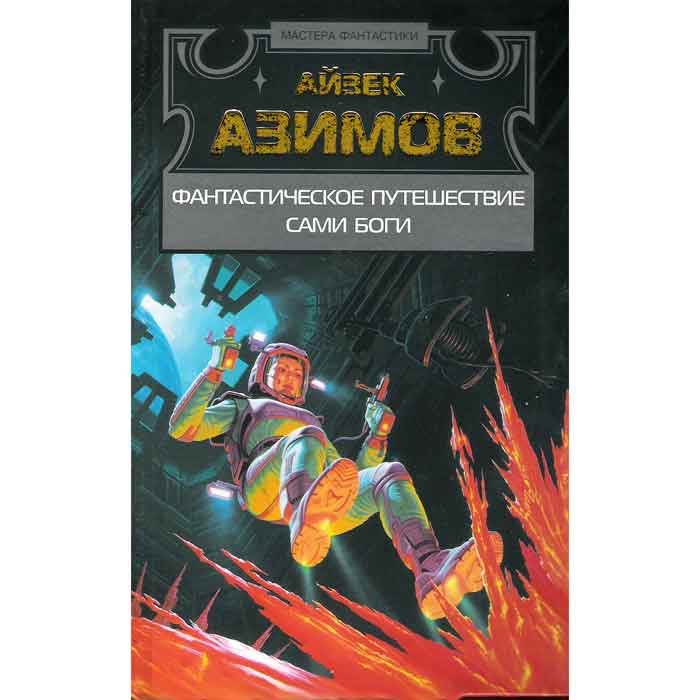
In the science fiction novel “The Gods themselves”, the contact of a person with creatures from a parallel universe is described, the sex of which is emotional, pestun and rational, and the laws of physics of their home planet differ from those of the earth.
Earthlings are no longer threatened by a crisis of lack of resources - Frederick Hellema developed an electronic Pump, which is provided with inexhaustible clean energy of all objects in the world in need. It would seem that this discovery is a matter of chance, but behind it are those very beings from another universe, where nuclear interaction is much stronger, the existence of isotopes is possible - an energy source unstable on Earth.
The novel consists of two parts: “Against nonsense”, where the author described the exchange of Wolfram-186 for Plutonium-186 by the radiochemist Helm, who accidentally discovered the inter-universe process of the exchange of matter (of the very energy being pumped). Having created the Pump and received a portion of fame, he did not continue working with the “brainchild” - other people did the scientific justification and realization for it. But the opponents of the scientist consider the process of pumping energy dangerous for the universe and are associated with "great men". In the second part, "... the Gods themselves ..." the author tells about the society of "great men." This is a deep, interesting and versatile parallel world, with which it is interesting to meet the reader-lover of fiction. The third part, "... Fight powerless?" Tells of the colonies on the moon, their interactions with the structures of the Earth. Scientist Denison offers a way out - to send the pumped energy to other Universes, in order to prevent the death of his monastery, for this, it is proposed to install devices on the Moon that compensate for the action of the Pump.
Profession (1957)
Book author: Isaac Asimov
Rating: 4.6
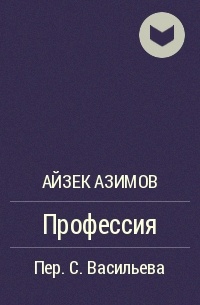
Isaac Asimov in his novel Profession, published in the middle of the 20th century, partially foresaw the future, describing the learning process without books — now knowledge was sewn into the brain using special machines. So, eight-year-old children learn writing and reading in a short time, and before the age of 18 they simply have no need to study - after reaching the age of majority, they are tested to determine their abilities, and depending on this, an automatic selection of the profession takes place, and it is recorded in the brain. A couple of years after the passage of the Olympics, students are allocated to jobs, the prestige of which directly depends on the number of points received in the competition. There is no freedom of choice, but everyone is happy with everything until the person is predetermined by the result of the Olympiad.
The exception to the rule was George Playten, who was interested in programming in his school years. He tries to master the case himself, but eventually fails a profile test, does not receive a referral, and goes to the clinic for the same "unprofessional" people. The patients of the center do not lose hope for a “useful” future and try to study the business on their own using books.After a couple of years, Playten escapes from the clinic, goes to the Olympics, does not overpower her, but understands: the world without a choice is not so fair, it deprives a person of development, and not the most stupid people are gathered in the hospital for the “deaf”. They retained the ability to think, learn and make discoveries, moving progress.
Naked Sun (1956)
Book author: Isaac Asimov
Rating: 4.5
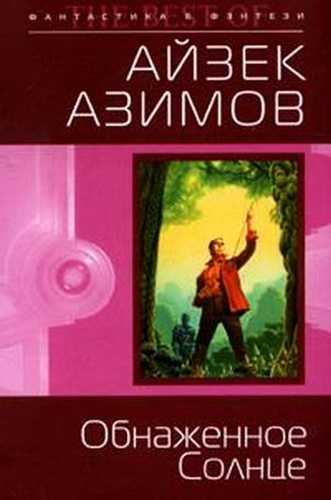
The next in the ranking of the novel "Naked Sun". A crime occurs on the planet of the external worlds of the Solarium, which the local residents cannot independently investigate. To this end, an expert detective Elijah Bailey is invited from Earth, with which residents have a tense relationship - he, along with a familiar robot, a native inhabitant of the Solarium, proceeds to unravel the threads of the incident. The only witness to the murder is a robot whose brain has burned out because it is impossible to prevent what happened, and he cannot testify accordingly.
The way of life on the planet is isolated - families live in estates, communicate mainly with robots - contact with other people, and even relatives become a test for them, is accomplished only when absolutely necessary.
As it later turns out, the investigation is only a pretext for calling a detective, the true reason is the discovery of a possible conspiracy threatening humanity. Detective simultaneously with the investigation of the murder finds the possible causes of the tragedy and offers a way out.
Second Academy (1953)
Book author: Isaac Asimov
Rating: 4.5
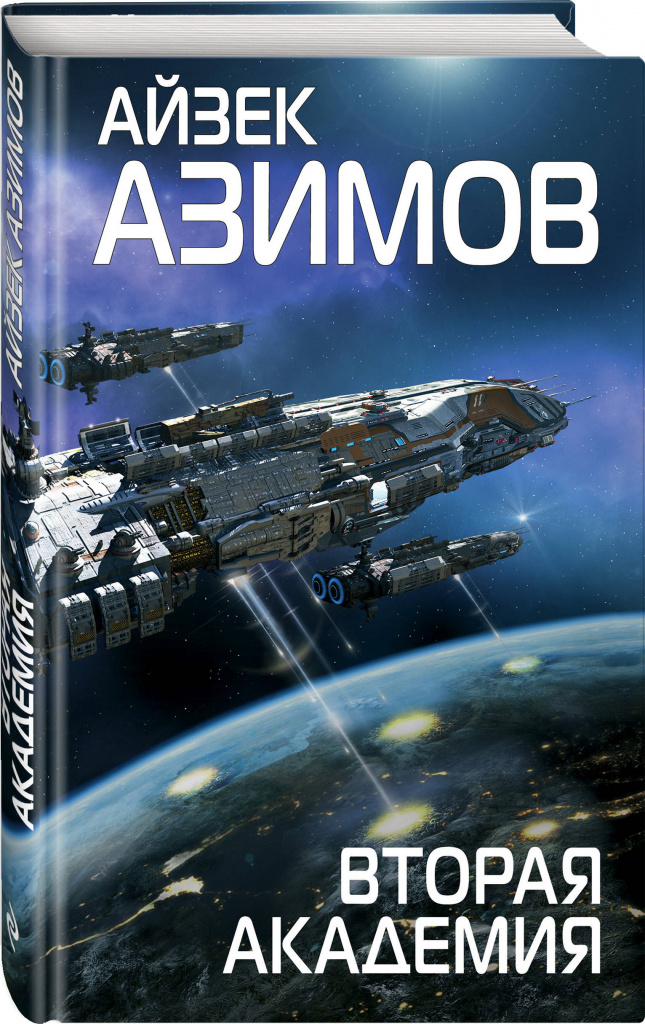
The novel "The Second Academy" - the third book in the cycle of science fiction Azimov "The Foundation". In order to understand what is being said in the work, we recommend reading the first two books, but the final one is recognized by the public as the most exciting and intriguing one.
The empire of the Galaxy was destroyed, only the Union of Worlds remained in power, at the head of which was the conquering ruler from the Mule Periphery threatening the Ground. He aims to expand the zone of government by capturing new galactic territories. Plans are not destined to come true because of the mysterious Second Academy, located on the other side of the Galaxy, on its very edge. Mul trying to find her with all his might.
During the trilogy, Isaac Asimov received several literary awards and prizes — a truly worthy of attention collection that science fiction fans will appreciate.
Robots and Empire (1985)
Book author: Isaac Asimov
Rating: 4.5
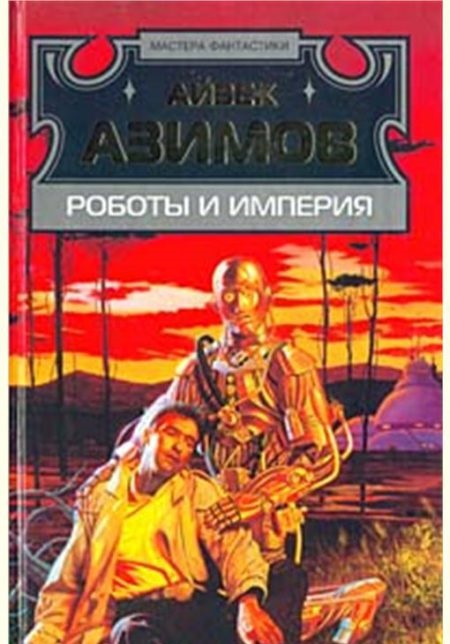
The novel from the late work of A. Azimov “Robots and the Empire” is a continuation of other works about robots, the action takes place several centuries after the death of Elijah Bailey. More and more earthlings leave their home abode and colonize other colonized planets, this inevitably leads to conflicts with the inhabitants of other Worlds. Solyrjanka Gladiya Delmar, with whom the reader met in the “Naked Sun”, leaves Aurora on her home planet with a mission to find out how things are - human activity has gone to that moment. Dr. Amadeyro, who wants to take revenge on the hated earthlings, is trying to kill Gladiyu using humanoid robots with a perfect brain. Robot Olivo opens the new zero law of robotics "not causing harm to humanity."
In the novel, there is a struggle of people, robots and influential heroes from other Worlds to halt the expansion of other planets in an attempt to expand the zone of influence of earthlings in the Galaxy.
Bicentennial Man (1976)
Book author: Isaac Asimov
Rating: 4.5
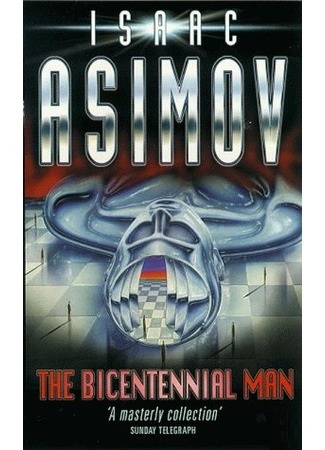
"Bicentennial Man" - this is the first in the ranking of the story A. Azimov, dedicated to robots. The Martin family acquires the butler of an NDR robot, which is called Andrew at home. Over time, it turned out that the machine has creative abilities - the robot began to engage in wooden crafts. The owner removes the duties of a butler from Andrew and helps to realize crafts, taking half of the proceeds, the second half goes to the robot. Artificial intelligence is investing in the maintenance of the outer shell; over time, it remains the only unpredictable robot on Earth.
The robot continues to live with the descendants of the Martins, continuing its work, and then switches to “humanizing” its own similar machines, so that they can eat, drink and think like people. He participates in the creation of artificial limbs, successfully sells them and becomes a recognized inventor.
Andrew's idea is to become a full-fledged person, but lawyers are afraid to admit it because of immortality. Then the robot decides on the operation, which will lead to a gradual withering like the aging of the “organism”. To the very end, Andrew thinks of Little Miss, the daughter of Sir Martin.
Last question (1956)
Book author: Isaac Asimov
Rating: 4.4
Isazek Asimov's favorite story “The Last Question” completes the ranking. This is a short but bright work that holds a rapid flight of thought (or fantasy?) For millions of years ahead until the moment when Humanity must cease to exist. The author runs the history of the development of technology and science in the search for an answer to the question of how to reduce the entropy (irreversible dispersion of energy).
The story “The Last Question” is recommended to be read first of all for acquaintance with the author - the work breaks the boundaries of human perception to prepare for flight across the expanses of the Galaxies of the Universe, about which Isaac Asimov writes.
Attention! This rating is subjective, is not advertising and does not serve as a guide to the purchase. Before buying, you should consult with a specialist.


